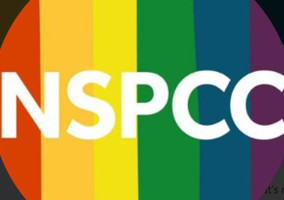Last week, to coincide with Pride month, NSPCC launched a new campaign focused on helping children to talk about gender and sexual identity.
This is exactly what the charity should be doing. And by launching during Pride month, it was in a good position to have some sensible discussion and ensure that young people know where they can turn for advice.
Unfortunately, its handling of criticism over the weekend has made its counselling service Childline less likely to be seen as a safe space for young people with questions about their gender identity. Its response to a backlash over a celebrity supporter gave the uncomfortable impression that it does not really understand the issues at play and has not done its research.
How did it all go so wrong? Almost entirely because when it was faced with criticism, it clammed up and tried to ignore it.
What happened?
As part of the campaign, NSPCC had enlisted the support of Munroe Bergdorf, a transgender activist and model.
As part of this, Bergdorf spoke to HuffPost about how proud she was to be the first LGBT+ campaigner for ChildLine, and made a video for Instagram.
But it wasn’t long before there was a backlash from people questioning whether Bergdorf was a suitable ambassador for the charity.
NSPCC’s social media accounts were bombarded with images of Bergdorf posing provocatively and questioning whether she was an appropriate role model.
In a now-deleted tweet, the Times journalist Janice Turner described Bergdorf as a “porn model”, and said: “It’s an astonishing decision. Is it worth the cancelled direct debits?”
According to Bergdof, this prompted the charity to “sever ties without speaking to me, delete all the content we made together and back-peddle without giving any reason why”.
She is now encouraging her supporters to donate to Mermaids, and many others are promising to cancel donations to NSPCC over how it behaved towards her.
Bergdorf’s supporters rallied round, accusing the critics of being transphobic and pointing out that NSPCC has previously appeared happy to work with models like Melinda Messenger and Abbey Clancy, who have posed in a similar way.
Poor response
NSPCC’s reaction to the criticism appears to have been to try strike a difficult balance. But instead it has fallen off the tightrope.
In its statement, it has distanced itself from Bergdorf but refused to accept any responsibility for its part in the partnership. It has also declined to explain what its policies are when it comes to working with celebrities or why it deleted the YouTube video.
This has fanned the flames of both sides of the argument.
NSPCC’s statement in full:
“Munroe Bergdorf has supported the most recent phase of Childline’s campaign which aims to support children with LGBTQ+ concerns. Munroe has been referred to as a Childline Ambassador. At no point has she been an Ambassador for the Charity. She will have no ongoing relationship with Childline or the NSPCC. The NSPCC does not support, endorse or authorise any personal statements made by any celebrities who contribute to campaigns. Childline is available to children without condition to provide support whatever the nature of their concerns.”
There are several problems with its statement, which ultimately means the headlines are now about how NSPCC has dropped Bergdorf and not the real issues at hand.
While NSPCC’s statement might insist that she was not an “ambassador”, last week it was describing her as “one influencer we’re working with on this campaign”. I for one am struggling to understand what the difference is (I’ve asked, and NSPCC won’t explain).
NSPCC’s reaction is cold and unemphathetic. It was never going to please anyone. By being vague it also allows for a number of possible interpretations of its intentions and actions.
As a charity that campaigns against the ready availability of sexualised imagery online, there is an argument that it should not work with celebrities who have in the past been involved in photo shoots that do just this. But it has not made this argument or explained this policy. And if this is its policy, it should surely have a tighter vetting system.
As a charity trying to reach and support young people it could have said it was proud to have worked with her on this campaign without explicitly endorsing all of her past behaviour.
Weak and indecisive
While this is a particularly difficult subject, by not being transparent about its policies and decision-making and attempting to back-track, NSPCC looks like it was just attempting to piggy back on activity around Pride.
It should certainly have been more prepared for a backlash and been able to respond in a way that didn’t isolate just about everyone.
Continue to stick its head in the sand the problem will only get worse. Instead of being seen as an important ally of the LGBT+ movement, NSPCC looks weak and indecisive. It also gives the impression that it cares more about its own reputation than anything else, which is exactly this kind of thing that erodes trust in institutions.
Any young person looking for advice about their gender identity will find the criticism of NSPCC and Childline for treating Bergdorf so rudely. How likely then will they be to call that charity for support?
|
Related articles











